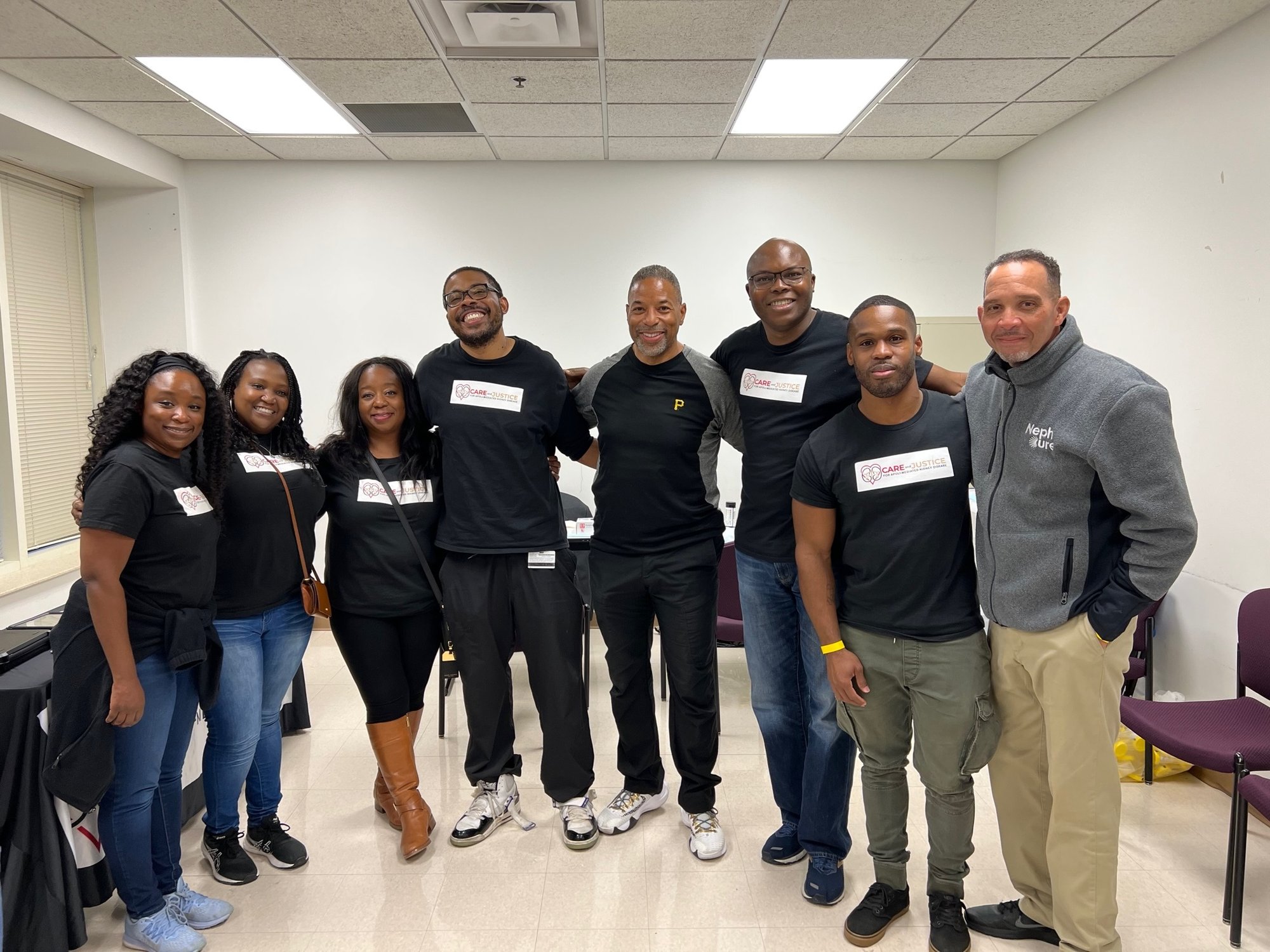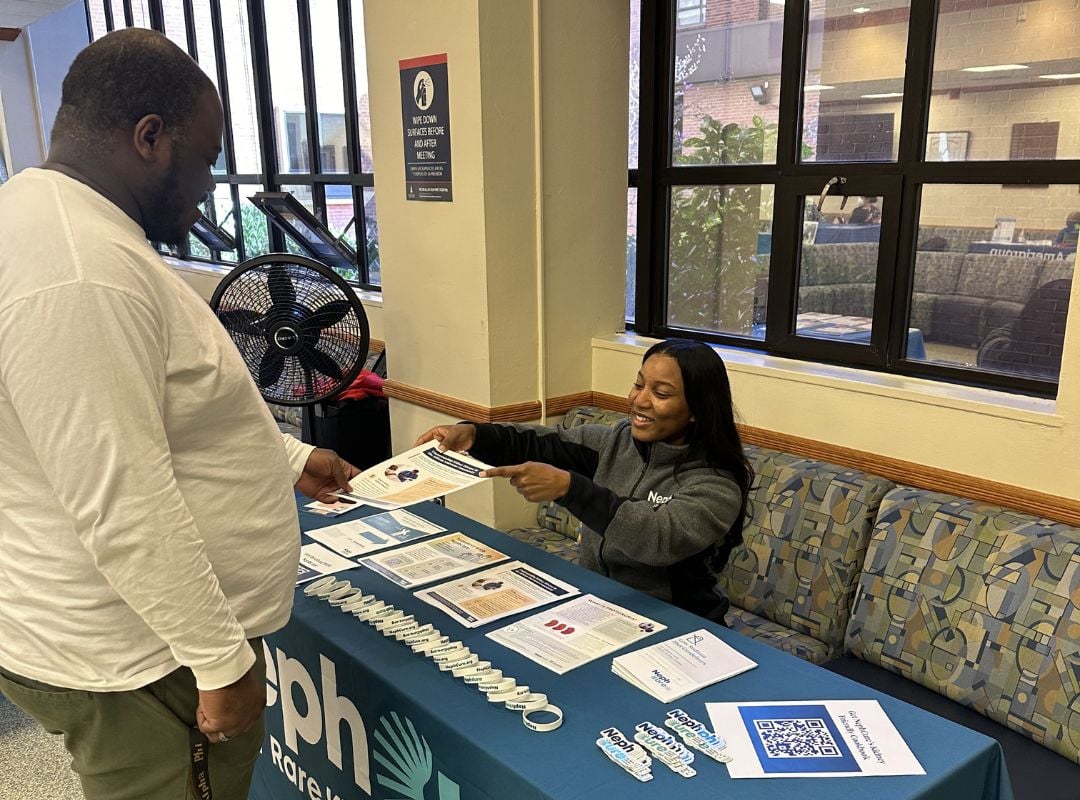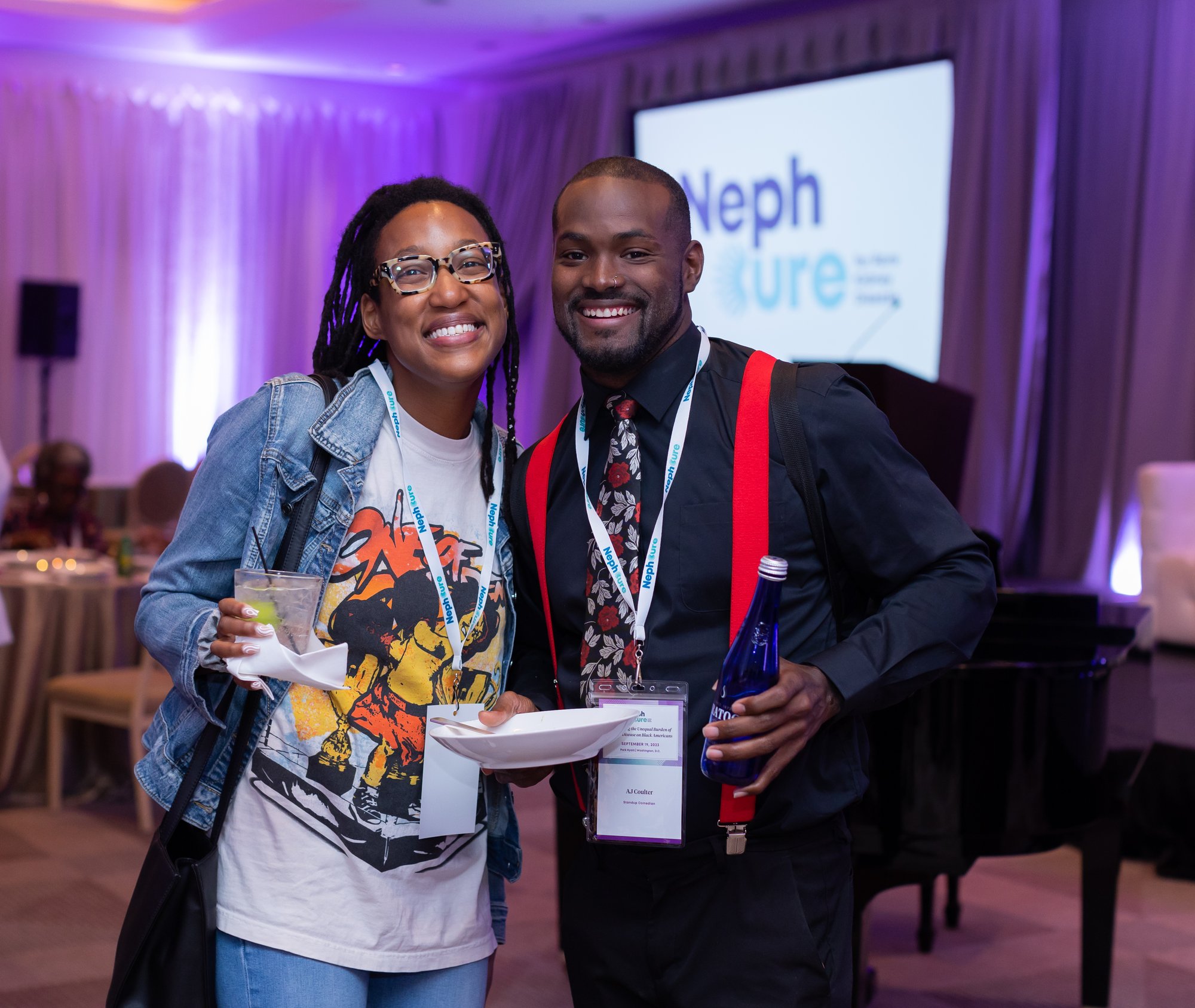
Join NephCure in the movement to raise awareness of a genetic kidney disease that impacts people of African descent

What is APOL1 Kidney Disease?
Every person inherits 2 copies of the APOL1 gene. Sometimes, there is a change in one or both of the APOL1 genes.
Those who inherit a change in both copies of their APOL1 genes have 10x to 30x the risk for developing kidney disease. These gene changes are only found in people of African descent.
People who are more likely to have the high-risk APOL1 genotype may identify as Black, African American, Hispanic, Latino, or Afro-Caribbean.
How You Can Help
Join NephCure in the Movement to Raise Awareness of APOL1 Kidney Disease
1. Post Your Photos and APOL1 Awareness Graphics on Social Mediaa
.jpg?width=1890&height=1400&name=APOL1%20EVENT%20(1).jpg)
2. Join Our APOL1 Day Virtual Town Hall
April 30th at 7pm ET via Zoom
Join a live virtual town hall, with leading APOL1 researchers, doctors, and people who are personally impacted by APOL1 kidney disease to ask questions and learn more about the impact of APOL1 kidney disease in Black and African American communities.

Did You Know?

Facts About APOL1
- 1 in 8 or 13% of African Americans have the APOL1 gene changes that can cause APOL1 kidney disease.
- Of these individuals, 1 in 5 will develop APOL1 kidney disease.
- APOL1 kidney disease is particularly aggressive. It can impact people of any age (including children and young adults) and often leads to kidney failure. There are currently no FDA- approved treatments for APOL1 kidney disease.
- Approximately 40% of nondiabetic kidney failure is caused by APOL1 gene changes.
APOL1 Patient Story
One Teen's Journey with FSGS
Meet Joshua Albright, a happy and seemingly-healthy 17-year-old who had just graduated from high school, and on his way to college—his whole life ahead of him. By pure chance, Joshua and his mother had discovered he was in the midst of a high blood pressure crisis. Despite wanting to hang out with his friends, she sent Joshua straight to the ER. What happens next is NephCure's hope for the future of everyone living with rare kidney disease: Joshua was immediately diagnosed with a rare and rapidly progressive kidney disease: FSGS.

Resources
Learn More About Rare Kidney Disease
Click on the resources below to learn more about APOL1 kidney disease.